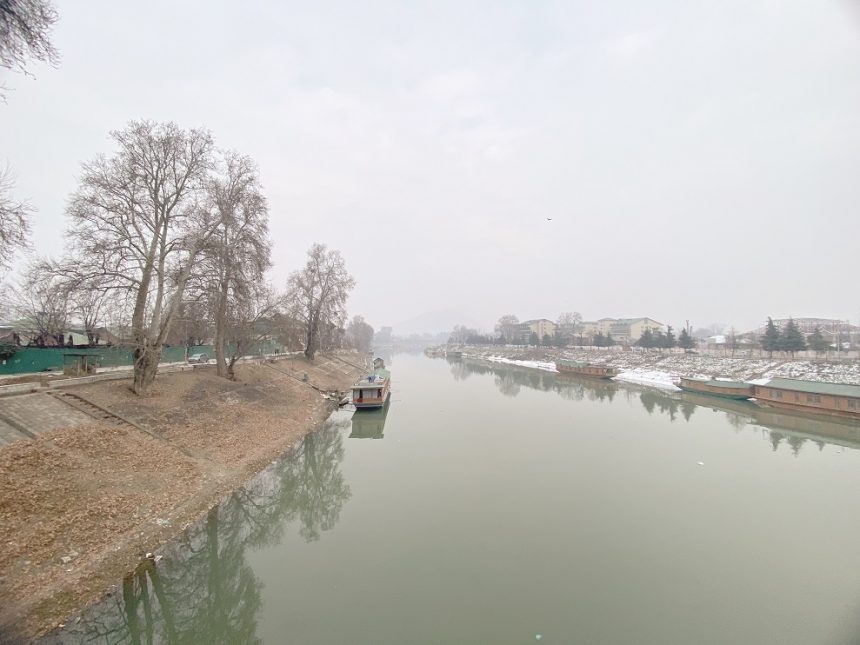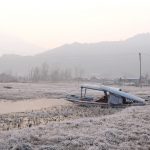Srinagar, Jan 11: Jhelum River water levels have dropped to an all-time low due to declining rainfall and snowfall, raising serious concerns for irrigation, drinking water supply, and flood control in Kashmir.
Speaking to Rising Kashmir, Chief Engineer Irrigation and Flood Control, Kashmir, BJ Sharma, cited the environmental changes as the primary cause over the alarming decline in water levels of the Jhelum River.
He said that the lack of sufficient rainfall and snowfall has impacted the river’s flow, creating challenges for irrigation, drinking water supply, and flood control measures.
“Currently, the water level in Sangam is minus 0.87 feet, at Ram Munshi Bagh it is 3.59 feet, and at Ashram, it is 1.01 feet. These levels are much lower compared to previous years, which is a serious issue,” he said.
He also said that decline has been observed throughout the year, affecting not only summer but also monsoon seasons. “In the past, we had timely and adequate rainfall and snowfall, which kept the water levels stable. However, this year, the late and insufficient snowfall in December and January has worsened the situation.
Sharma said that reduced water levels have posed challenges to irrigation, especially for farmers relying on lift irrigation schemes. “In many schemes, the water supply for farmers became dry due to the low levels. But somehow, we managed by creating diversion channels and using tarp pumps to ensure water reached the required areas,” he added.
He said that the department has learned from the challenges posed by this year’s dry spell. “We expect similar conditions next year if precipitation and snowfall remain low. The groundwater levels are also at risk of declining further.”
He said that to tackle future challenges, the department has developed a drought action plan in collaboration with the Public Health Engineering (PHE) department. “Under this plan, we will install drought pumps to lift water from low levels to ensure irrigation and drinking water supply is maintained during dry spells.”
Sharma said creating awareness among the public is important to managing water resources effectively. “Farmers must stop water supply to their fields when not needed, and households should turn off taps once their water requirements are met. Using water judiciously will benefit both the public and the department,” he said.
He further said that the department is committed to take all necessary measures to address the water crisis and ensure minimal disruption to farmers and the public. “We have taken lessons from this year and will implement better strategies to manage water efficiently,” he said.
The Chief Engineer urged citizens to cooperate with the government’s efforts to conserve water. “The message needs to reach all villages. By using water wisely, we can overcome these challenges together,” he added.
Rain, snow decline causes Jhelum water levels to hit record low
Groundwater levels also at risk due to declining precipitation: CEI&FC

Leave a Comment Leave a Comment







